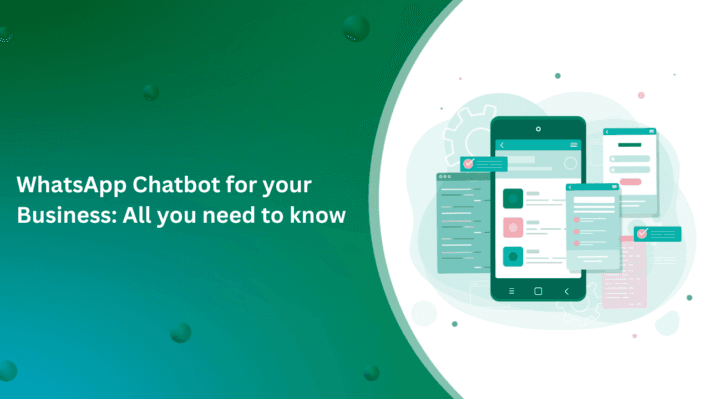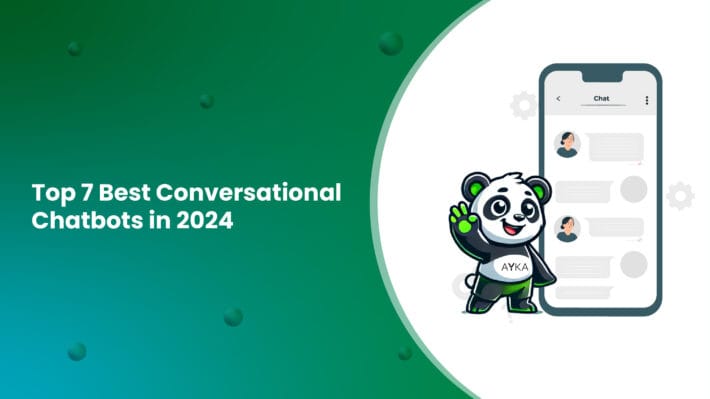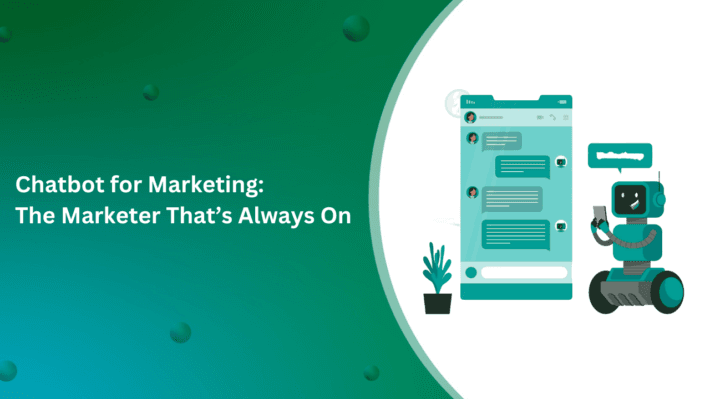Top 10 Advantages of Chatbot for Your Business
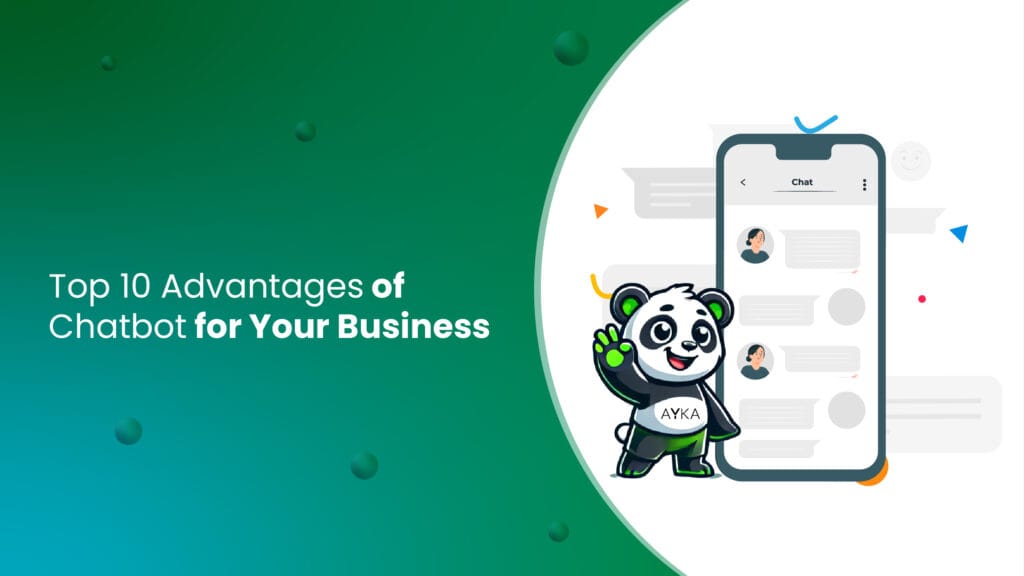
In today’s competitive business environment, companies face the challenge of meeting growing customer expectations while managing limited resources. Customers demand quick responses, personalized service, and support available around the clock—often in multiple languages and across various platforms. For businesses, this creates pressure to provide exceptional service while maintaining operational efficiency.
This is where the Advantages of Chatbot come in. These intelligent digital assistants offer a solution to the problem of constant customer demands. Imagine a tool that never tires, is available 24/7, and can handle thousands of inquiries at once—effortlessly and accurately. Powered by artificial intelligence and machine learning, chatbots are revolutionizing customer engagement, helping businesses enhance service delivery, reduce costs, and improve overall efficiency.
What Are Chatbots?
Before diving into their advantages, let’s quickly understand what chatbots are. A chatbot is an artificial intelligence-powered software that can simulate human conversation through text or voice interactions. These digital assistants can communicate with users in real-time, answer questions, solve problems, and provide personalized experiences across various platforms like websites, messaging apps, and social media.
Benefits for Customers
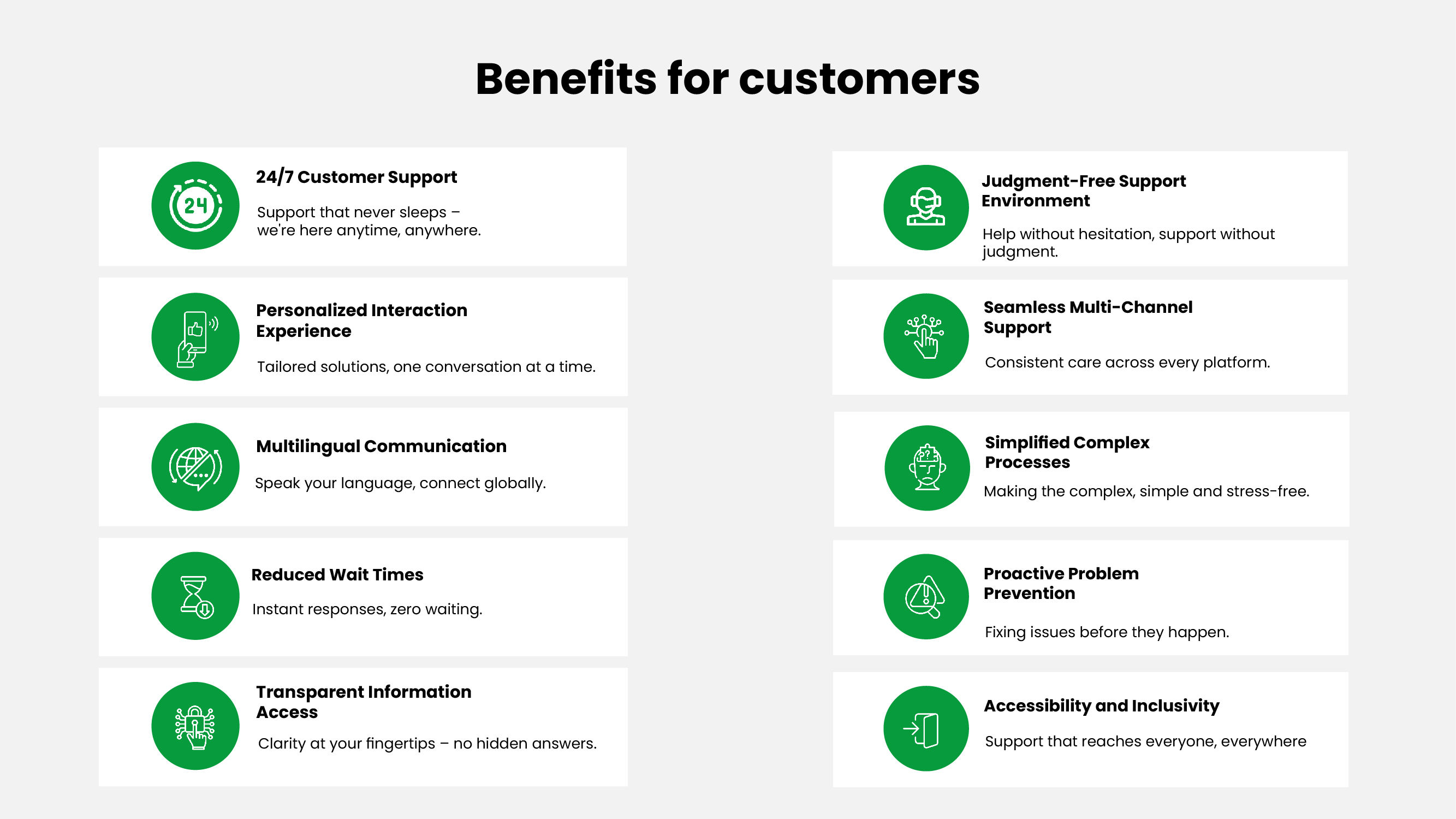
1. 24/7 Customer Support Chatbots are like digital helpers that work 24 hours a day, 7 days a week. Imagine having a helpful assistant who never sleeps and can answer your questions instantly, whether it’s 3 PM or 3 AM. Customers don’t have to wait for business hours or worry about time zones. This means people can get help whenever they need it, making their experience much smoother and less frustrating.
2. Personalized Interaction Experience Advanced chatbots create tailored experiences by remembering individual customer preferences, past interactions, and purchase history. This enables highly customized recommendations and support that feels uniquely crafted for each customer.
3. Multilingual Communication Breaking language barriers, chatbots offer support in multiple languages, making services more inclusive and accessible to a diverse global customer base. Customers can communicate comfortably in their preferred language.
4. Reduced Wait Times No more endless phone queues or prolonged email exchanges. Chatbots provide instant responses, dramatically reducing customer frustration and improving overall service satisfaction. Customers get answers within seconds, not hours or days.
5. Transparent Information Access Chatbots offer clear, straightforward information about products, services, pricing, and policies. Customers can easily obtain comprehensive details without feeling pressured or confused by complex explanations.
6. Judgment-Free Support Environment Many customers feel uncomfortable asking repetitive or potentially embarrassing questions to human representatives. Chatbots provide a non-judgmental, patient platform where customers can seek information freely and confidently.
7. Seamless Multi-Channel Support Customers can start conversations on websites, continue on mobile apps, and finish on social media without losing context. This integrated approach ensures a smooth, consistent support experience across different platforms.
8. Simplified Complex Processes Chatbots guide customers through complicated procedures like returns, technical troubleshooting, or account management, breaking down complex steps into easy-to-understand instructions.
9. Proactive Problem Prevention By analyzing customer interactions and behavior, chatbots can anticipate potential issues and offer preemptive solutions, helping customers avoid problems before they escalate.
10. Accessibility and Inclusivity Modern chatbots incorporate features like text-to-speech, simple language options, and adaptive interfaces, making digital services more accessible to people with different abilities and technological comfort levels.
Benefits for Businesses
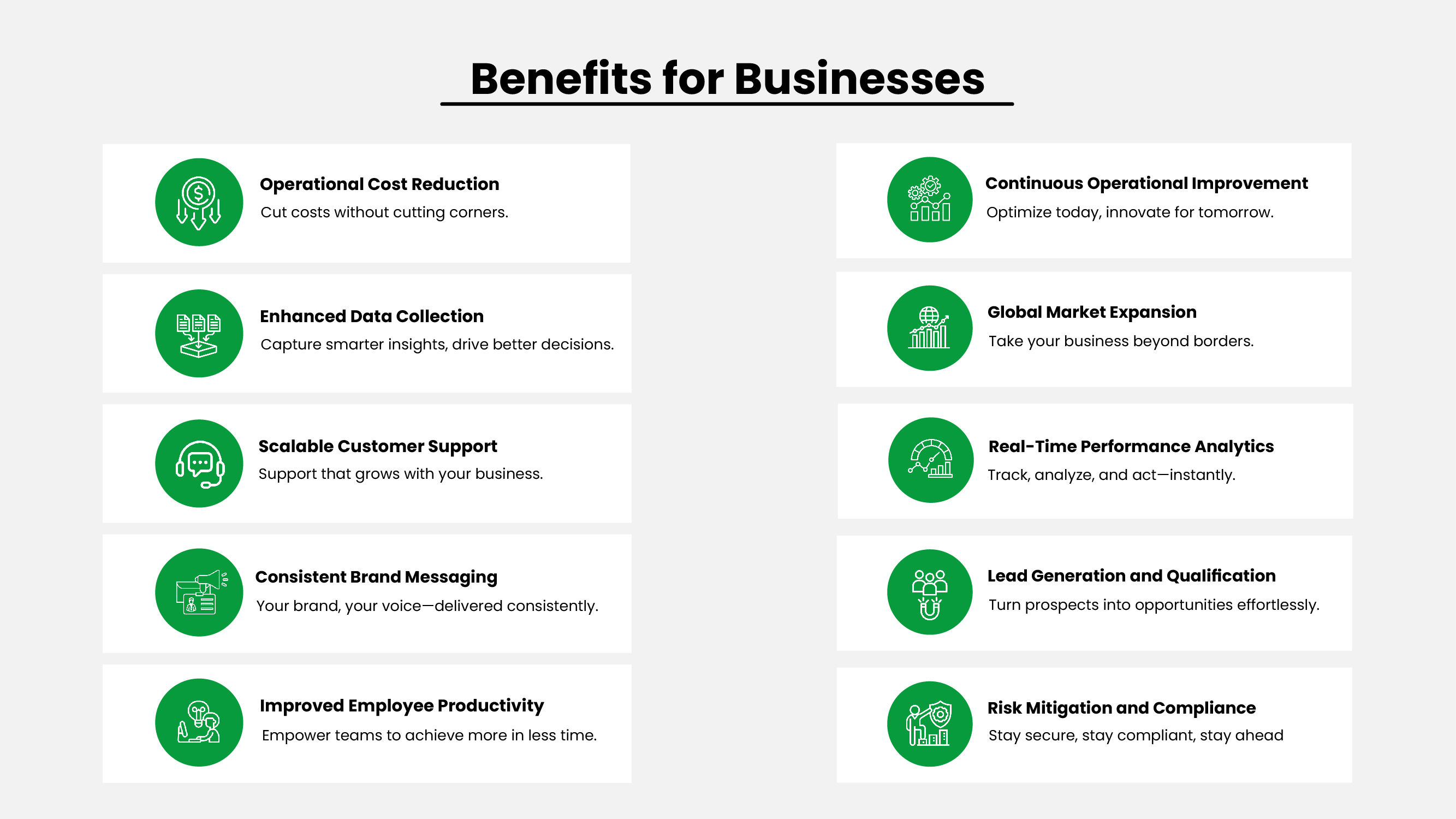
1. Operational Cost Reduction Chatbots significantly lower customer support expenses by handling multiple inquiries simultaneously, reducing the need for large support teams and minimizing training and infrastructure costs.
2. Enhanced Data Collection Every customer interaction becomes a valuable data point. Chatbots systematically collect and analyze customer preferences, pain points, and behavior patterns, providing deep insights for strategic decision-making.
3. Scalable Customer Support During peak periods or rapid business growth, chatbots can effortlessly manage thousands of simultaneous conversations without compromising response quality or requiring proportional staff increases.
4. Consistent Brand Messaging Programmed with specific communication guidelines, chatbots ensure uniform brand representation across all customer interactions, maintaining a cohesive and professional brand identity.
5. Improved Employee Productivity By handling routine inquiries, chatbots free human employees to focus on complex, high-value tasks that require critical thinking, creativity, and emotional intelligence.
6. Continuous Operational Improvement Machine learning algorithms enable chatbots to continuously refine their responses, learning from each interaction to provide increasingly sophisticated and accurate support.
7. Global Market Expansion Multilingual chatbot capabilities allow businesses to serve international markets efficiently, reducing the complexities and costs associated with traditional global customer support models.
8. Real-Time Performance Analytics Businesses can instantly track and analyze customer interaction metrics, response times, satisfaction rates, and other critical performance indicators to drive continuous improvement.
9. Lead Generation and Qualification Chatbots can engage potential customers, collect preliminary information, and qualify leads before passing them to human sales representatives, optimizing the sales funnel efficiency.
10. Risk Mitigation and Compliance Programmed with precise guidelines and up-to-date information, chatbots help businesses maintain consistent compliance with industry regulations and reduce the risk of human error in customer interactions.
How Chatbots are Transforming Industries
Chatbots are being widely adopted across industries, each leveraging their unique capabilities:
- E-commerce: Assist with product searches, handle returns, and track orders.
- Healthcare: Schedule appointments, offer symptom checkers, and provide health tips.
- Banking: Facilitate transactions, update account details, and answer queries.
- Travel: Book tickets, suggest destinations, and update itineraries.
- Education: Provide real-time assistance to students and recommend learning materials.
Challenges to Consider
While chatbots have many advantages, it’s important to recognize their limitations, such as:
- Inability to handle complex queries requiring human empathy or expertise.
- Initial setup and training costs for sophisticated AI chatbots.
- Dependency on technology, which can lead to disruptions during outages.
However, continuous advancements in AI and machine learning are gradually addressing these challenges, making chatbots more versatile and efficient.
Conclusion
Chatbots are no longer a futuristic concept but a present-day necessity for businesses looking to improve customer experience, reduce costs, and stay competitive. By leveraging AI technology, companies can transform their customer interaction strategies and unlock new levels of efficiency and engagement. The advantages of chatbot solutions are becoming more evident as businesses increasingly adopt these tools to streamline operations and enhance customer satisfaction.
As technology continues to evolve, omnichannel chatbots will become even more sophisticated, offering even more advanced features and capabilities. Businesses that embrace this technology today will be well-positioned for success in the digital marketplace.
Ready to revolutionize your customer support? Explore chatbot solutions and take your business communication to the next level!

